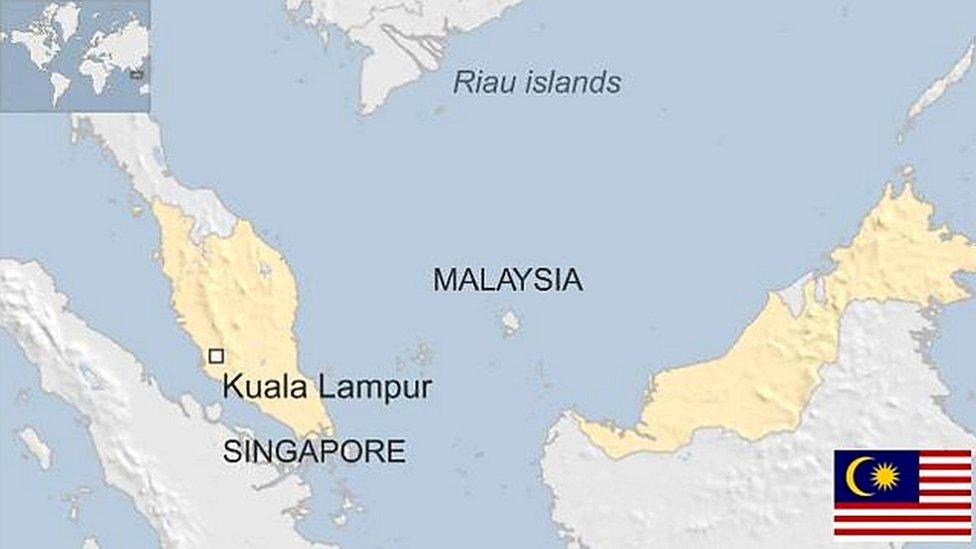Why Malaysians are disillusioned with Najib Razak
- Published
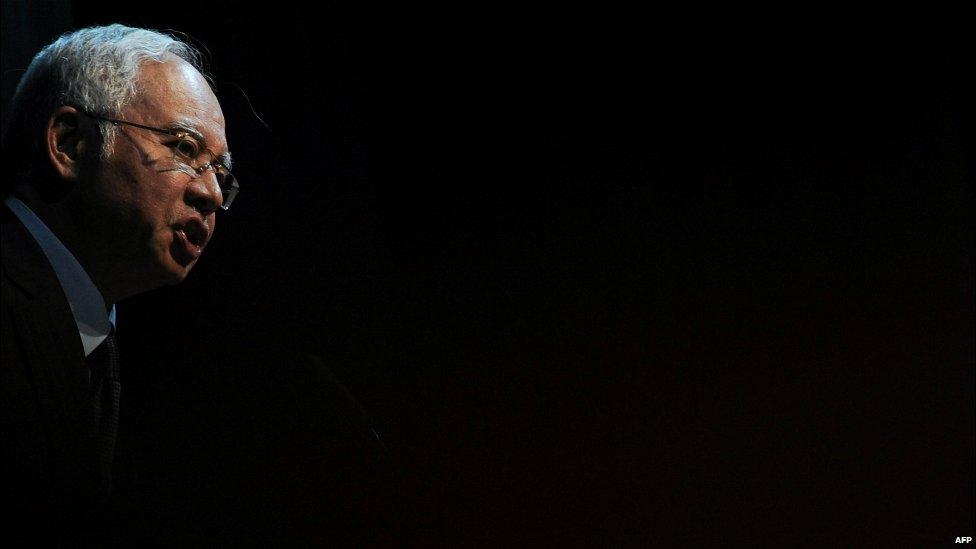
Mr Najib promised a raft of reforms but many say he has failed to deliver
A massive street rally has been held in Malaysia this weekend calling for Prime Minister Najib Razak to step down over a financial scandal.
The story so far is that the prime minister received close to $700m (£455m) in his bank account from a generous Middle East donor or donors.
Some of his ministers have made astonishing defences as to how that money was used. One Muslim official suggested that their party needed the funds to counter the "Jewish threat" in the last general election, while another said the donation was a gift for Malaysia's efforts in fighting terrorism.
The answers raised more questions and left some Malaysians calling for him to resign.
Things were not always this bad for Mr Najib. The British-educated economist began his tenure in 2009 with a promising start, by pledging a raft of reforms long championed by the opposition.
Here are some of the major promises Mr Najib made:
1Malaysia
This was a national unity campaign to rebrand his Malay-Muslim dominated Barisan Nasional coalition as one that cared for Malaysians of all faiths and ethnicities.
He pledged to roll back affirmative action policies that favoured the ethnic Malay majority over other races, to make the economy more transparent and based on merit.
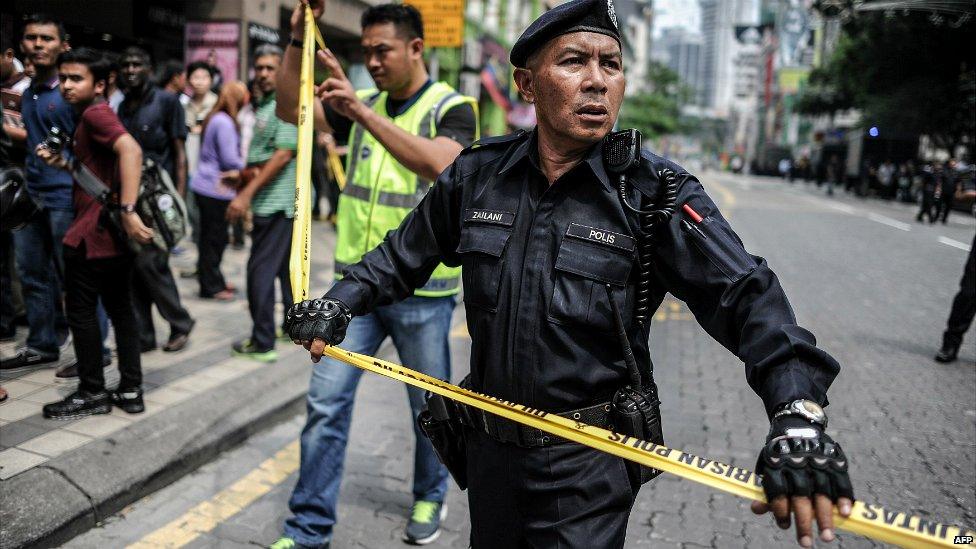
There have been regular protests against the prime minister in recent months
His message was welcomed even by supporters of the political opposition, but there were concerns, external over whether he could make the old guard in his party accept the idea.
Today, ethnic minorities say they are no closer to meritocracy, especially in the enrolment of government universities.
Mr Najib's carefully cultivated image as a champion of national unity was shattered after he blamed his coalition's weaker majority on the lack of ethnic Chinese votes, calling it a "Chinese tsunami".
More civil liberties
Prime Minister Najib encouraged the public to reach out to him through social media. He is active on Twitter, external and on Facebook, external and he even has a Chinese language Facebook page, external to communicate with Malaysian Chinese voters. For the first time in Malaysian history, the public could voice their concerns directly to the prime minister.
However, as public anger built against him, the authorities blocked access to news sites that covered the 1MDB scandal extensively and vowed to move against "rumour mongers".
One of the laws frequently used against government critics is the sedition act, which Mr Najib had initially promised to abolish but instead strengthened without explanation.
He did get rid of a raft of security laws that allowed for detention without trial, including the Internal Security Act. But activists said their replacements were just as bad.
Malaysia was also criticised for jailing opposition leader Anwar Ibrahim for sodomy, which was widely perceived as a politically trumped-up charge.
Fiscal reforms
Mr Najib promised to take Malaysia from a country dependent on cheap exports and raw materials, to a high-income economy.
To invest in these projects, he needed more revenue by pushing through two key reforms that had been stalled for years.
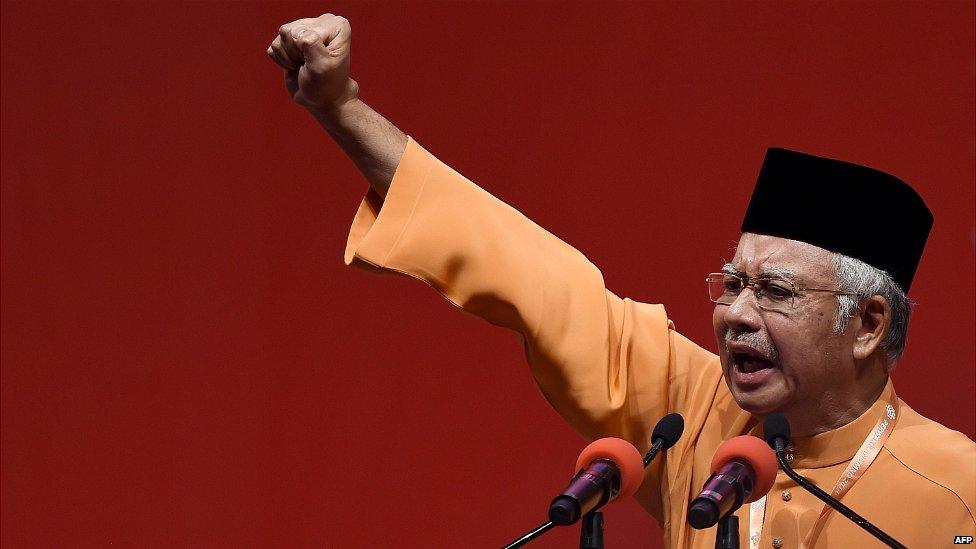
Mr Najib has been accused of alienating his country's religious minority groups
He cut back food and fuel subsidies and implemented a broad-based consumption tax called the GST, despite fierce opposition from within his own party.
Economists such as Yeah Kim Leng have applauded this move.
They say that despite some reports of businesses raising their prices, the issues will be corrected in the long run and bring Malaysia in-line with international norms.
However, the latest financial scandal has renewed claims that Mr Najib could have increased revenues by cracking down on government waste and corruption rather than making Malaysians pay more.
Moderate Islam
Mr Najib wanted to take an active role in resolving issues between Muslims and non-Muslims.
Malaysia is currently facilitating peace talks between Muslim rebels and the Philippines and Thai government.
He also started a programme called the global movement of moderates, which gained support from US President Barack Obama and UK Prime Minister David Cameron.
"The real divide is not between Muslims and non-Muslims or between the developed and developing worlds. It is between moderates and extremists," he said in his address to the United Nations in 2010.
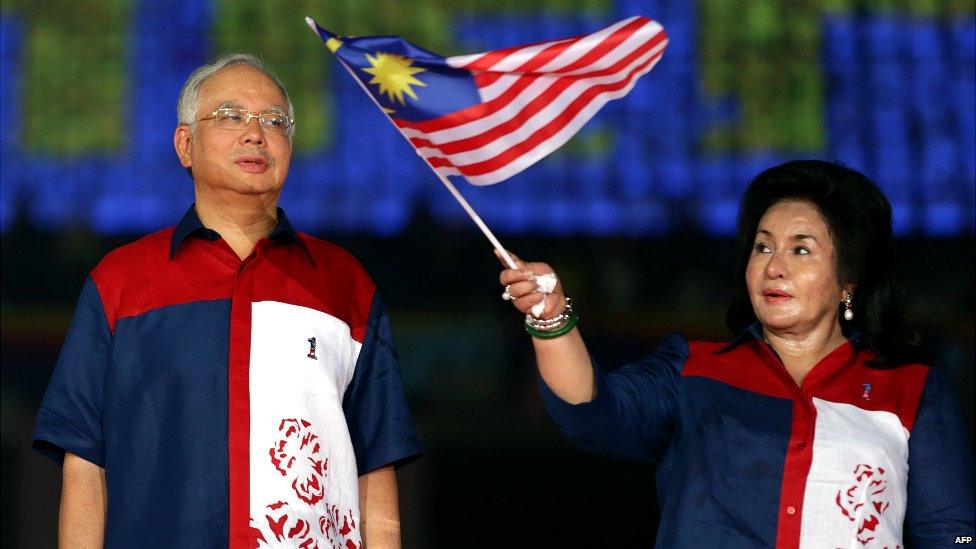
Some Malaysians accuse Mr Najib's wife, Rosmah Mansor, of being too lavish
However, religious minorities accuse Mr Najib of failing to practice moderation at home and fuelling Islamisation.
He also alienated the country's two million Christians in his handling of a fight over the use of the Arabic term Allah.
The Rosmah factor
Mr Najib's wife, Rosmah Mansor, is routinely criticised for her alleged love of luxury items and shopping sprees.
A series of pictures of her holding different coloured handbags, which sell for thousands of dollars each, circulated online.
The prime minister dismissed these claims of a lavish lifestyle as political-motivated assaults.
Ms Rosmah also angered struggling Malaysians when she lamented that she had to pay her hairstylist $400 (£260) for a home visit.
The allegations took a more serious turn when her bank account details were leaked at the height of her husband's financial scandal.
It was reported that some half a million dollars was deposited into her account, raising questions of where the money had come from.
Her lawyer said this was an "improper and outright breach" of her client's personal information.
- Published28 July 2020
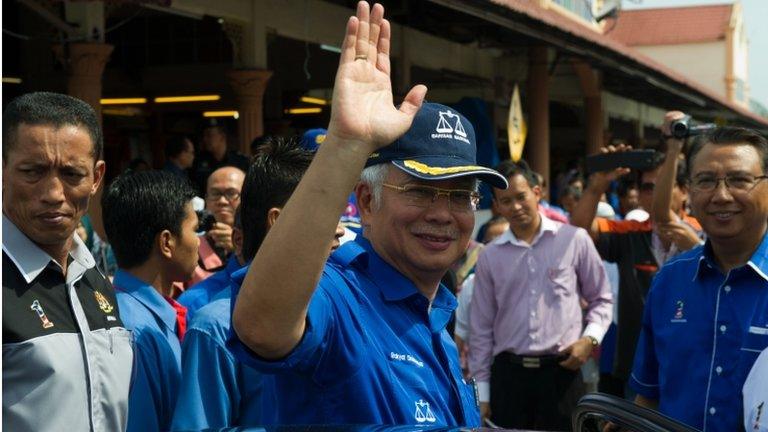
- Published19 May 2023
